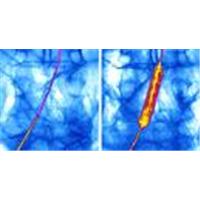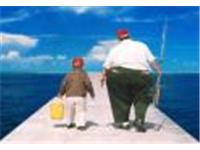
There are more than two million sufferers of angina in the UK. It is the medical term for pain caused by a lack of oxygen to the heart and is the most common form of coronary heart disease.
Symptoms include pains in the chest which are caused by a lack of oxygen to the heart muscle, usually as a result of arteriosclerosis – where the blood vessels that supply the heart muscles with oxygen have narrowed.
In general, angina pain is brought on when the heart has to work harder, for instance during exercise, eating a large meal or during particularly cold weather or during times of stress. Angina is not usually fatal, but it is a sign that the heart is not healthy – not enough blood is reaching the heart and there is an increased risk of a heart attack. As with many of the diseases of ageing it is more likely to happen to smokers, sufferers of high blood pressure, people with high cholesterol and diabetes, those who don’t take exercise or are overweight.
Men over 45 and women over 55 are more likely to suffer from all forms of coronary heart disease, and the chances of developing angina increase gradually as people get older. A family history of the disease also increases the likelihood. Symptoms may include the following: tightness across the chest, heaviness, dull discomfort, numbness, burning, pressure or crushing pain usually behind the breastbone. It can also spread to the arms, neck, stomach and jaw. An attack usually lasts between 30 seconds and 15 minutes. However, similar symptoms can be caused by muscular pain or indigestion and it is therefore advisable to get any chest pain checked by a doctor.
Diagnosis is usually made through an electrocardiogram ( ECG), a test which records the rhythm and electrical activity of the heart. Alternately, doctors may advise a coronary angiogram, in which a very long and thin tube is inserted through an artery in the arm or leg and guided into the heart. Dye is injected into the arteries around the heart and X-rays taken. Again the dye allows the doctor to see if any of the arteries that supply the heart muscle are blocked or narrowed.
Medication includes the following: Glyceryl trinitrate, a painkiller, which helps ease pressure on the heart by dilating the blood vessels. This allows more oxygen to reach the heart, which widens the artery and helps reduce the pain. It comes in the form of a spray, or a tablet which you place under your tongue. Aspirin is also a popular treatment because it helps prevent the blood from clotting.
Statins, cholesterol-lowering drugs, block the production of an enzyme which causes the liver to produce cholesterol and prevents excess cholesterol from entering the blood stream. If the coronary arteries are blocked and drugs fail to open them, a surgical procedure may be the alternative.
An operation, known as angioplasty, in which a tiny deflated balloon is inserted through a leg or arm, fed into the problem artery, then inflated opening and unblocking it. A stent, or small metal rod, might be put into the artery where the blockage was to hold the artery open. The number of angioplasty procedures has tripled in the past ten years, and it has proved very successful.
A coronary by-pass is a more serious form of surgery. The aim is to get around the narrow sections of the thickened coronary arteries by grafting a blood vessel between the aorta – the main artery leaving the heart – and a point in the coronary artery beyond the narrowed area. Veins may be used from the legs to bypass the narrowed area of the coronary artery.
The British Heart Foundation recommends as a preventative measure everyone should reduce their salt and saturated fat intakes which helps to reduce blood pressure and cholesterol levels and weight loss. Increasing levels of anti-oxidents is recommended by eating at least least five portions of fruit and vegetables daily as well as oily fish. Smokers double their risk of death because the action of various constituents of tobacco work to deprive the blood and therefore the heart of oxygen. The carbon monoxide in cigarettes joins onto the red protein of the blood cell (haemoglobin) making it less able to carry oxygen while the nicotine stimulates the production of adrenaline, making the heart beat faster and raising blood pressure. A minimum of half an hour of moderate exercise five times a week is also recommended.Cutting down on stress is also beneficial. Further information can be obtained from British Heart Foundation www.bhf.org.uk or contact their Heart Health Line on 0870 600 6566.
New medical devices
The US company Medtronic is working on trials of a device implanted beneath the skin to relieve the pain of angina. The device sends mild electrical signals to stimulate the spinal cord.


